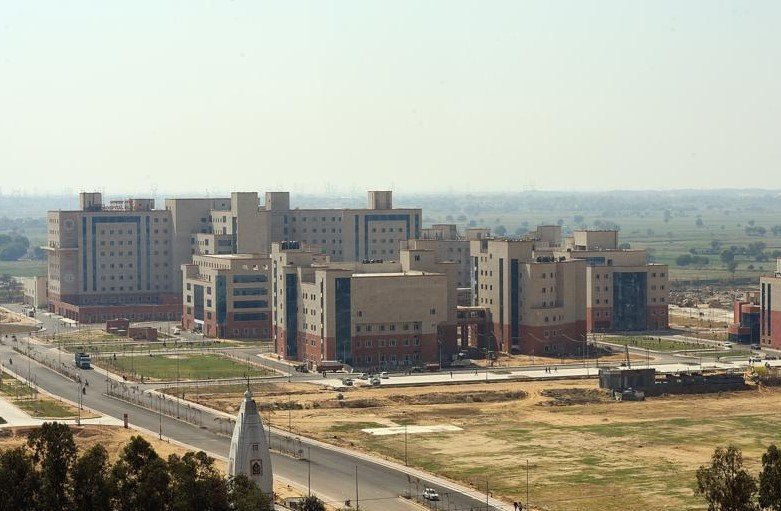In a major step towards making advanced cancer treatments more accessible in India, doctors at AIIMS Delhi are working on a revolutionary low-cost cellular therapy for treating multiple myeloma, a form of blood cancer. Their innovative approach aims to tackle the financial barriers that prevent many patients from accessing life-saving treatments.
AIIMS Breakthrough: A Cost-Effective Solution
Doctors at the All India Institute of Medical Sciences (AIIMS) in Delhi are making significant strides in developing an affordable, antibody-based cellular therapy for multiple myeloma. This form of blood cancer is notoriously difficult to treat, with a high relapse rate and limited access to advanced therapies. The team at AIIMS is working on a low-cost version of CAR-T cell therapy, which has shown promise in treating various types of cancers, but remains prohibitively expensive.
CAR-T Cell Therapy Explained:
- What it is: CAR-T cell therapy is an adaptive cellular therapy that involves isolating a patient’s T cells, genetically modifying them to target cancer cells, and then reintroducing them into the body.
- How it works: These modified T cells are programmed to recognize and destroy cancer cells by targeting specific proteins, such as B-cell maturation antigen (BCMA), found on the surface of multiple myeloma cells.
Dr. Mayank Singh, an Additional Professor in the Department of Medical Oncology at AIIMS, explains that the therapy focuses on targeting BCMA, a protein found specifically in multiple myeloma cells. “By targeting BCMA, our therapy aims to destroy the cancer cells while sparing healthy tissue,” he said.
The AIIMS-developed therapy is still in the experimental phase, but it has already shown promising results in animal models. “The next step is to initiate phase-1 clinical trials to assess its safety and effectiveness in humans,” Dr. Singh added.

Targeting Multiple Myeloma: The Need for Affordable Treatment
Multiple myeloma is a cancer that originates in plasma cells, a type of white blood cell responsible for producing antibodies. When these plasma cells become cancerous, they multiply uncontrollably, crowding out healthy blood-forming cells in the bone marrow. This leads to weakened immune systems, anemia, kidney problems, and bone fractures.
While traditional treatments such as chemotherapy and radiotherapy can be effective, they often come with severe side effects, as they also damage healthy cells. In recent years, targeted therapies have been developed, which focus on specific vulnerabilities in cancer cells. However, even these advanced treatments often encounter resistance, making the cancer return after a period of remission.
As Dr. Singh points out, the high cost of existing CAR-T therapies is a major hurdle, especially in countries like India, where the majority of patients cannot afford such treatments. “Our goal is to significantly reduce the cost of this therapy, making it more accessible to Indian patients who need it,” he said.
A Glimpse of Hope for the Future
The potential impact of a low-cost CAR-T therapy for multiple myeloma is profound. If successful, this treatment could offer a new lease on life for thousands of patients who would otherwise be unable to afford the high-priced alternatives currently available. With multiple myeloma being a challenging and often fatal cancer, any progress toward affordable treatment is a major victory in the fight against cancer.
By targeting BCMA, the AIIMS team is taking a step closer to providing a precision therapy that doesn’t just treat cancer but also minimizes damage to surrounding healthy tissue. This could potentially improve the quality of life for patients undergoing treatment, reducing the side effects typically associated with chemotherapy and radiation therapy.
The Role of Immunotherapy in Cancer Treatment
Over the past decade, immunotherapy has changed the landscape of cancer treatment. This includes therapies like monoclonal antibodies, which are engineered to target cancer cells specifically. These therapies often use antibodies that are paired with chemotherapeutic agents, allowing for more targeted delivery and reducing side effects.
Dr. Singh highlights the role of antibody-based therapies in revolutionizing cancer treatment. “CAR-T therapies are a natural extension of monoclonal antibody therapy. By engineering T cells to target cancer-specific antigens like BCMA, we have a more precise tool in the fight against cancer,” he said.
However, as noted earlier, the steep costs of CAR-T therapies make them inaccessible to a large number of patients worldwide. In India, where cancer treatment costs are already a financial burden for many families, the affordability of innovative treatments is crucial. AIIMS’s initiative aims to bridge this gap, offering a potential solution to the affordability crisis in cancer care.
